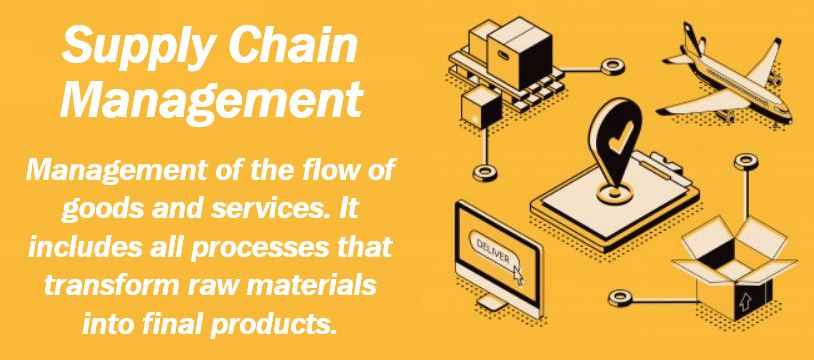Business, work, and consumer behavior have recently been upended on a scale not seen in recent memory thanks to COVID-19. With these seismic changes come opportunities and challenges in equal measure, but how will industry leaders, entrepreneurs, employees and customers respond to them? The answers to these questions are being eagerly sought, and will define how work advances in the coming years and decades.
Innovators who understand how to embrace these opportunities, while also preparing themselves for the challenges, will position their companies for success no matter what other macro events send shockwaves through the global economy in the future.
Remote work is here to stay, but it will evolve

Suddenly, there came a day in most American cities in spring 2020 where employees who were not considered “essential” were not allowed to go to the office anymore. Workers went remote on a massive scale in a short amount of time, and yet business carried on, albeit in ways that no one had anticipated.
Early in the pandemic there was talk about what it would be like when “non-essential” workers returned to physical offices en masse. However it’s now clear that such a scenario is unlikely to happen in the near future. For many, remote work is now a regular part of their lives, and it has massive implications for businesses, employees, and customers alike.
Whether it’s a company shedding expensive downtown office space in favor of a smaller physical footprint, giving employees flex hours to work remotely, or transitioning to an entirely online presence, the future of remote work will look different for every enterprise. This is the time for leaders to find avenues for innovation in how they employ remote work practices that can help engage their team members and customers alike – both groups of whom depend on a trust that will lack many of the old cues, and will depend on the new ones.
Supply chain management will take on a new importance

For many industries, one of the harshest lessons of the pandemic so far has been the stark realization that their supply chains were inherently vulnerable to such a wide-ranging global crisis. When managers only look one level deep when evaluating where they get their materials and supplies, they can be in for a big surprise when something drastic happens to a company three or four tiers down that they ultimately depend on to operate.
For most companies, it would be either inadvisable or near-impossible to disentangle themselves from global supply partners, and the post-pandemic economy is not going to mean the end of centralized manufacturing hubs. But diversification and stricter controls over the supply chain are compatible with operational efficiencies, and proactive managers will find unique ways to protect their channels in the face of future difficulties.
There will be additional opportunities for disruption
The recent decade of 2010-2020 was one of disruption, an era when inexpensive and ubiquitous mobile technology allowed startups to enter arenas that had previously been closed to them, and to upend traditional business and customer relationships almost overnight.
Service companies to aid startups and entrepreneurs flourished – witness how simply any new business could form a corporation in California, or any state. Online services bloomed to assist even the small property investor. Now it seems this time of disruption and innovation was just a warm-up for what the future is likely to bring.
Startups tend to view disruption as an opportunity, while established companies often interpret it as a threat, but it doesn’t have to be that way. Any type of business can benefit from disruption if it recognizes and takes advantage of the opportunities that arise. Established organizations should comb through their operations closely and identify areas where they can potentially disrupt themselves and introduce new efficiencies in their processes and the marketplace.
Investment in cyber security will be a vital part of strategies going forward

The continuous shift towards ecommerce and other online solutions that has been accelerated by the global pandemic is a double-edged sword for both consumers and brands. On the positive side of the equation, an increase in the volume of digital transactions means greater convenience and safety for customers, and new opportunities for brands to connect with their buyers and add value to the experience.
On the other hand, it also means that consumers are more likely to have their information targeted by hackers, and companies must bear the increased risk of severe brand damage that come with a high-profile hacking story.
The threats from cybercriminals are real, but innovative companies also have a chance in the current environment to differentiate themselves based on their cyber security strategy and resources. The businesses that not only develop a consistent track record of safeguarding customer data, but also explain to their buyers how they are taking advanced measures to protect them, will have an advantage.
Retraining will help workers adapt to the new normal
Employees have been affected by the changes to the economy in vastly different ways, but they have all been impacted somehow. Workers in many industries will have to demonstrate some willingness to be flexible in order to remain competitive, but the onus is also on employers to give their teams the tools they need to learn new skills and find new ways to do their jobs in the face of rapidly changing circumstances.
With remote work becoming more common than ever, employees will need to add to their capabilities in order to maximize their efficiency outside of the office – indeed, the World Economic Forum forecast in 2016 that creativity would be one of greatest skills that employees can offer in the future. Employers can help this – from self-troubleshooting tech issues to optimizing time management and cross training for redundancies, retraining initiatives can give companies a leg up in recruiting and retaining top performing employees for the future.
Interesting futuristic article: “What is the IoT?“

